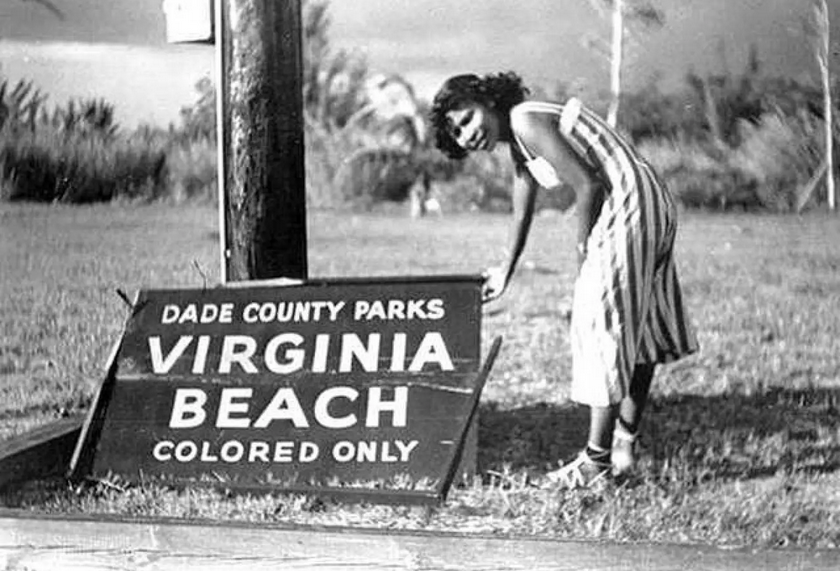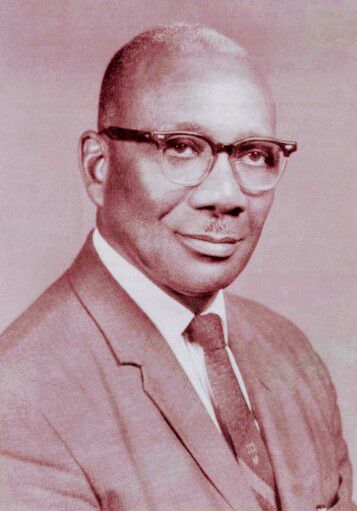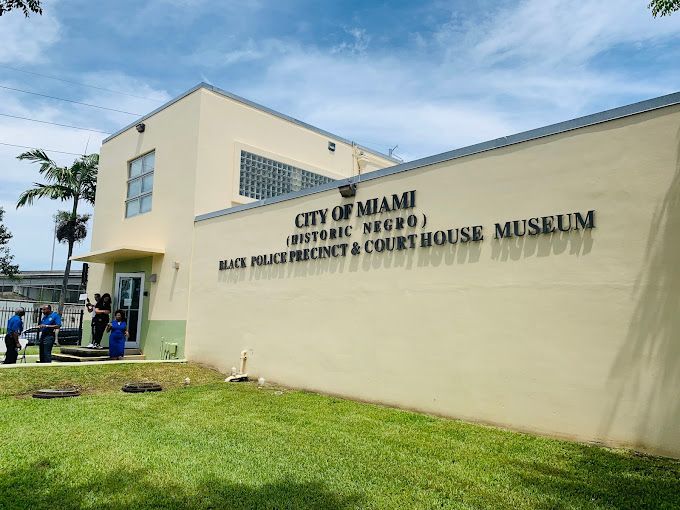This week in Florida History May 7 to 13

May 9, 1945, the first act of Civil Disobedience in the fight for Civil Rights?
On May 10, 1945, two days after World War II in Europe ended, the Miami Herald ran a story deep in the paper entitled, "No Arrests: Negros Test Beach Rights at Haulover." Haulover is a sandy beach park in the northeastern part of what's now called Miami-Dade County. The simple story, just a few paragraphs long and largely forgotten to history, may be one of the most significant events of twentieth-century America as it heralded a new approach to civil rights in America.
With the War in Europe over, Black Americans did what they'd done after their service for the United States in the American Revolution, the American Civil War and The Great War (World War I) and demanded that they be recognized as equal citizens. As the war was winding down, especially in the Atlantic, 50 to 60 Black Americans, most tied to the American Civil Liberties Union, waded into the blue waters on the sandy white beach north of Miami, hoping to be arrested. Lawson E. Thomas, an African American attorney, stood on the beach with $500 in his pocket for bail money for his partners in civil disobedience. But, as the Miami Herald recorded, there were no arrests made that day.
The Dade County Sheriff had been alerted to the event by a member of the group, the president of the Negro Citizens' Service League, Judge Henderson, who had called the sheriff's office to notify them of the event from the event. He placed the call from the office of the group's allies in the integrated Longshoreman's Association. Knowing that the group was hoping to get arrested for making a scene where they could fight for their rights to access the beach, Sheriff's Deputy R. O. Scruggs, who was on the beach, told the Herald, though he was aware of the event ahead of time there was no law against Black Americans bathing along the beach.

Historian Gregory W. Bush uses this story to open his book, White Sand, Black Beach: Civil Rights, Public Space and Virginia Key, to put into context the current battles in South Florida over public access to natural resources, such as beaches. Three months after Thomas, Henderson and their friends used civil disobedience to get the attention of the county, the county agreed to give Black Americans, finally, a beach of their own, on a barrier island only accessible by ferry, called Virginia Key. As Bush retells the story, "In a city that depended upon tourism for its economic lifeblood, the white power structure needed to avoid ugly racial confrontations."

This act of civil disobedience in South Florida, with the aid of the NAACP and the attention of a young civil rights lawyer named Thurgood Marshall, happened almost a decade before Rosa Parks sat down on that bus in Montgomery, Alabama. Five years later, almost to the day, the lawyer standing on the beach with $500 bail money in his pocket, Lawson E. Thomas, went on to become the first Black judge in the South since Reconstruction ended in 1877. He would preside over some 30,000 cases a year in a small courthouse atop the "Black Police Precinct" in Overtwon, Miami. That segregated police station and courthouse would oversee the crowded Black neighborhoods in Miami until a civil rights-minded Attorney General in Florida officially ended segregation in 1963.

In 1954 Thurgood Marshall argued what is now known as Brown versus the Board of Education before the United States Supreme Court and won, formally ending "Jim Crow" and the Separate But Equal laws in America, which had ruled since Plessy vs. Ferguson was decided in 1896, and was the explicit reason why Black Americans could not use any beaches in Florida. Jim Crow became the law of the land only two months before the city of Miami was incorporated. In 1967 Marshall became a justice of the United States Supreme Court, a position he'd hold until he retired in 1991 and was succeeded by Clarence Thomas.
The first Black judge in the South and his associate, the first Black Supreme Court Justice, made a name for themselves in Florida in the 1950s. Their commitment to equal justice forever changed American Civil Rights. The torch was passed from their hands through George H W "Rubbers" Bush's nomination, confirmed by a Senate Judiciary panel led by Joseph R. Biden, a Senator from Delaware, to Clarence Thomas.
In 2023 the only beaches in the City of Miami with public access are on Virginia Key (or the spit of landing connecting the causeway to it), which is now connected to the City of Miami on the west by a causeway and Fisher Key, one of the most expensive zip codes in the United States, and Key Biscayne to the southeast.
